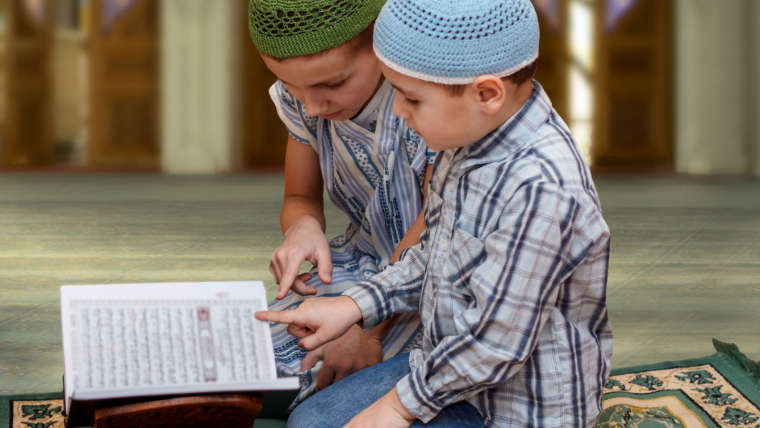Learn Quran Online with Tajweed
Quran learning Classes for Kids and Adults are suitable for all students with different ages, education and their available time through private (one on one) with Expert male & female Arab Quran teachers.
Free Trial class
Male/Female Tutors
One-on-One Live Sessions
Completion Certificates
Classes Around The Clock
Daily/Monthly Reports
Learn Quran Online with Tajweed
Quran learning Classes for Kids and Adults are suitable for all students with different ages, education and their available time through private (one on one) with Expert male & female Arab Quran teachers.
Free Trial class
Male/Female Tutors
One-on-One Live Sessions
Completion Certificates
Classes Around The Clock
Daily/Monthly Reports

Online Quran Courses
Noorani Qaida course
Noorani Qaida is the easiest and fastest way for learning reading quran. it begins with learning the individual Arabic alphabet letters. Then, learning the vowels (Fatha, Khasra and Dhamma). After that, students learn Sukoon and Shadda to practice the correct pronunciation of each letter. Enable students during a short time to read Quran correctly with applying Tajweed rules. Book Trial Now
Quran Recitation Course
After students finishing learning Noorani Qaida program, they can start learn Quran online by reading from Mushaf with Uthmani Font (the font used in writing the Holy Quran) to complete a full khatma (Ijazah) with his/her teacher this is the Quran Reading Course. Student will practice reading quran a lot, to ensure he/she has mastered reciting quran and be confident to read alone! Book Trial Now
Quran Hifz course
To ascend in Ranks in Paradise with each verse we memorize; “Quran Sheikh” (Learn Quran Online Institute) Best online quran website provides a plan for memorizing and revising quran. The memorization plan (Hifz program) is suitable for all students with different ages, education and their available time through private (one to one) with Best male & female Arab teachers.
Book Trial Now
Quran Tajweed course
Learn Quran online with Quran Tajweed depends on explaining the rules of Tajweed theoretically and applying them in a practical and easy way. Student learns names of Tajweed Rules like: Izhar. Ikhfaa, Idgham.. So as to master Quran Reading as it was revealed to prophet Muhammed (PBUH). Book Trial Now
Online Ijazah course
For achieving the highest level of reciting quran perfectly. Student will recite all the Holy Quran to his/her teacher from memory and getting an official ijazah certificate “ijazah online” with “Sanad” for teaching quran with Tajweed Rules. Also, Quran Sheikh provides a “Ifadah in Quran Recitation“.
Book Trial Now
Islamic Studies Course
All what you need to know about Islam: a set of Islamic lessons presented in an easy and practical way on Aqeeda, Feqh, Sunna of prophet Muhammed (PBUH). In addition to, special lessons about practical Islamic behavior such as: honoring parents, respecting older persons, visiting patients, …
Book Trial Now

Why Quran Sheikh

Leader Academy

Male/Female Tutors

Reports

Certification

24/7 Support

1 on 1 Sessions

Easy Payment

QUALITY MATERIALS

EASY PLATFORM

We Appreciate Your Feedback
Excellent teachers that have high level of teaching skills and good memorization techniques with good use of technology. They have the right level of patience to teach the younger generation and are very punctual and always offer an alternative class for any disruptions to the schedule. Overall, the institute is very well managed, and the fee is also never overcharged. My daughter has improved quite a lot without the need to leave home.

Ummu Zainab
Brisbane, Australia
We are very happy with the quality of teaching as it makes it easy to learn. The online learning is very beneficial as it allows us to choose what time to read and don’t have to travel anywhere. There has already been a great amount of progress since the start. Overall i think this service is amazing and would recommend it to anyone who is looking to read Quran with professionals who know the rules of Tajweed and have great recitation quality.

Fatima Kalley
North carolina, USA
Masha Allah
It has been a great experience to learn online from native speakers. Currently, I am at the end of completing my 14th surah, the evaluation at the beginning helped my teacher determine my strength and weakness, they used this to determine a better way to teach me as a individual.
Alhamdulillah

Irum bi
Coventry, UK



